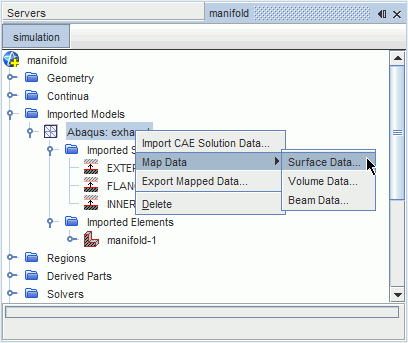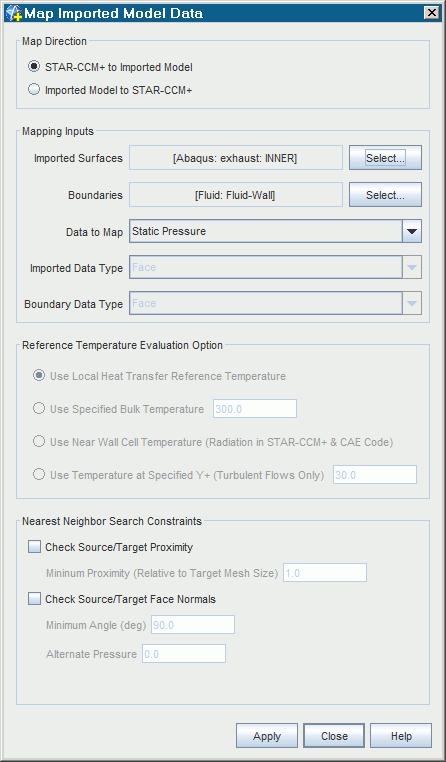Mapping Boundary Data to Imported Surfaces
- Expand the Imported Models node.
-
Right-click the
[Imported CAE Model] node of interest and select

This menu option is also used to map imported CAE data to the Simcenter STAR-CCM+ model.
In the
Map Imported Model Data
dialog:
- Set Map Direction to STAR-CCM+ to Imported Model.
- In the Mapping Inputs box, select the Simcenter STAR-CCM+ boundaries you wish to map from, and the imported model surfaces you wish to map to.
-
Use the
Data to map property to select which field data will be mapped.
The drop-down list displays field functions that are available for mapping in the simulation.When you select the field data, the Imported Data Type and Boundary Data Type are set automatically. If you are mapping local heat transfer coefficients, you can also select a reference temperature evaluation option. For more information, see Selecting a Reference Temperature Evaluation Option.
In some cases the mapping algorithm may fail to find appropriate neighbors for each face on the source boundary. If this happens:
- Use the additional constraints provided in the Nearest Neighbor Search Constraints box at the bottom of the dialog. Activating these constraints also enables you to check the success of the mapping operation using the mapped flag field function. See Using the Mapped Flag Field Function.
-
When the settings in the dialog are complete click
Apply then
Close.
The time taken to carry out the mapping operation will be displayed in the Output window, followed by Done. A field function will be exposed corresponding to the mapped data, for example the Mapped Pressure field function will be exposed if you map Pressure data. You can use this field function to export the mapped data.In the following example, the settings specify that static pressure data will be mapped from theFluid Wall boundary of the Simcenter STAR-CCM+ model to the INNER surface of the imported Abaqus model.
